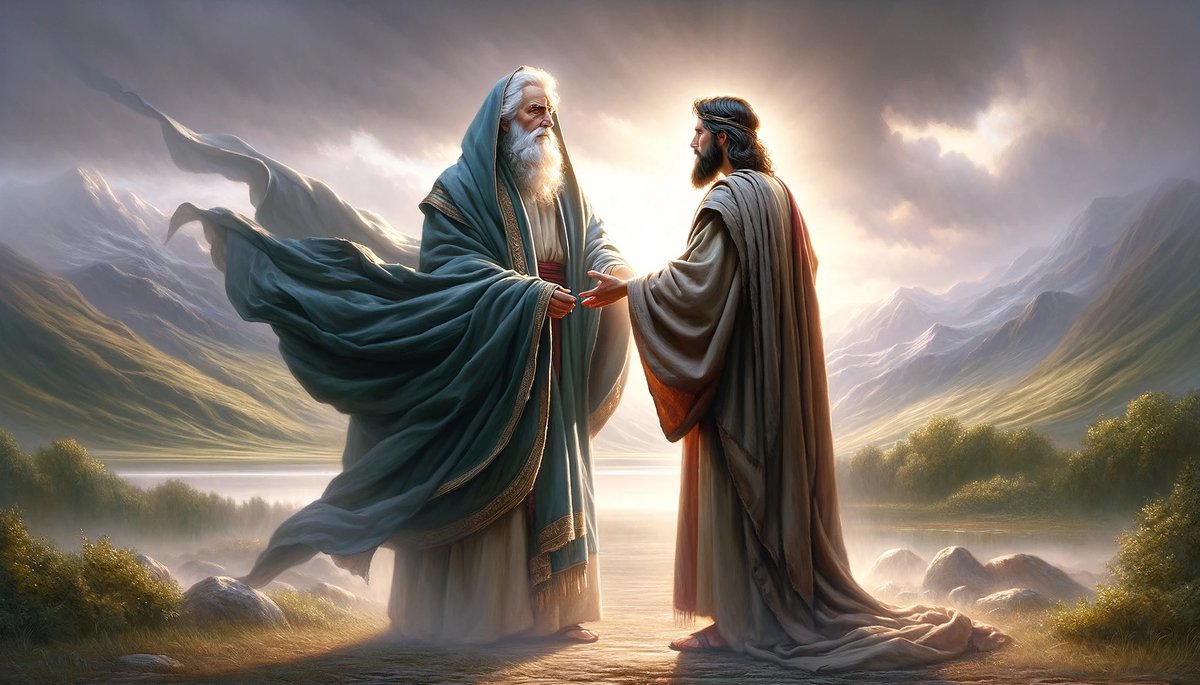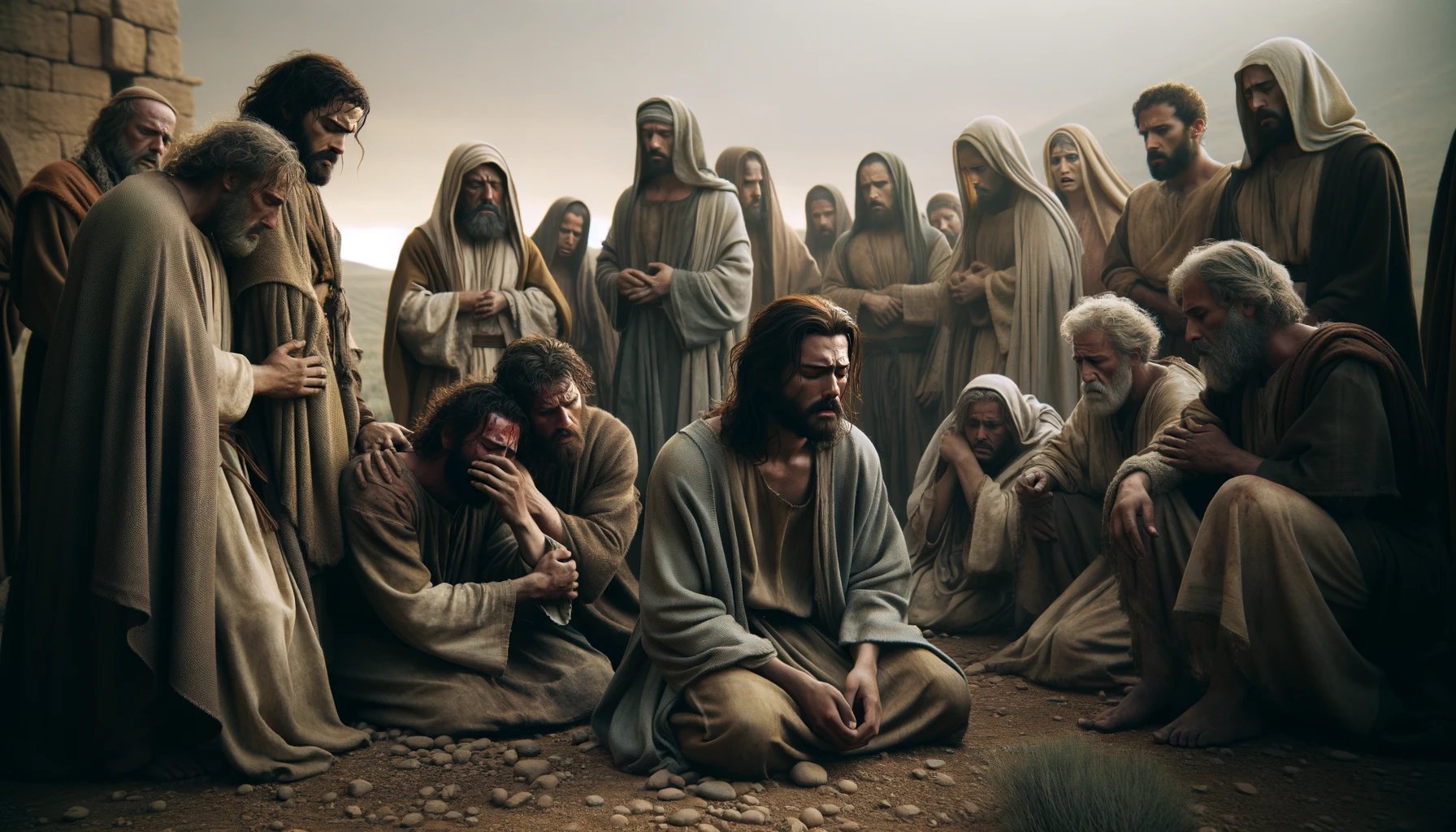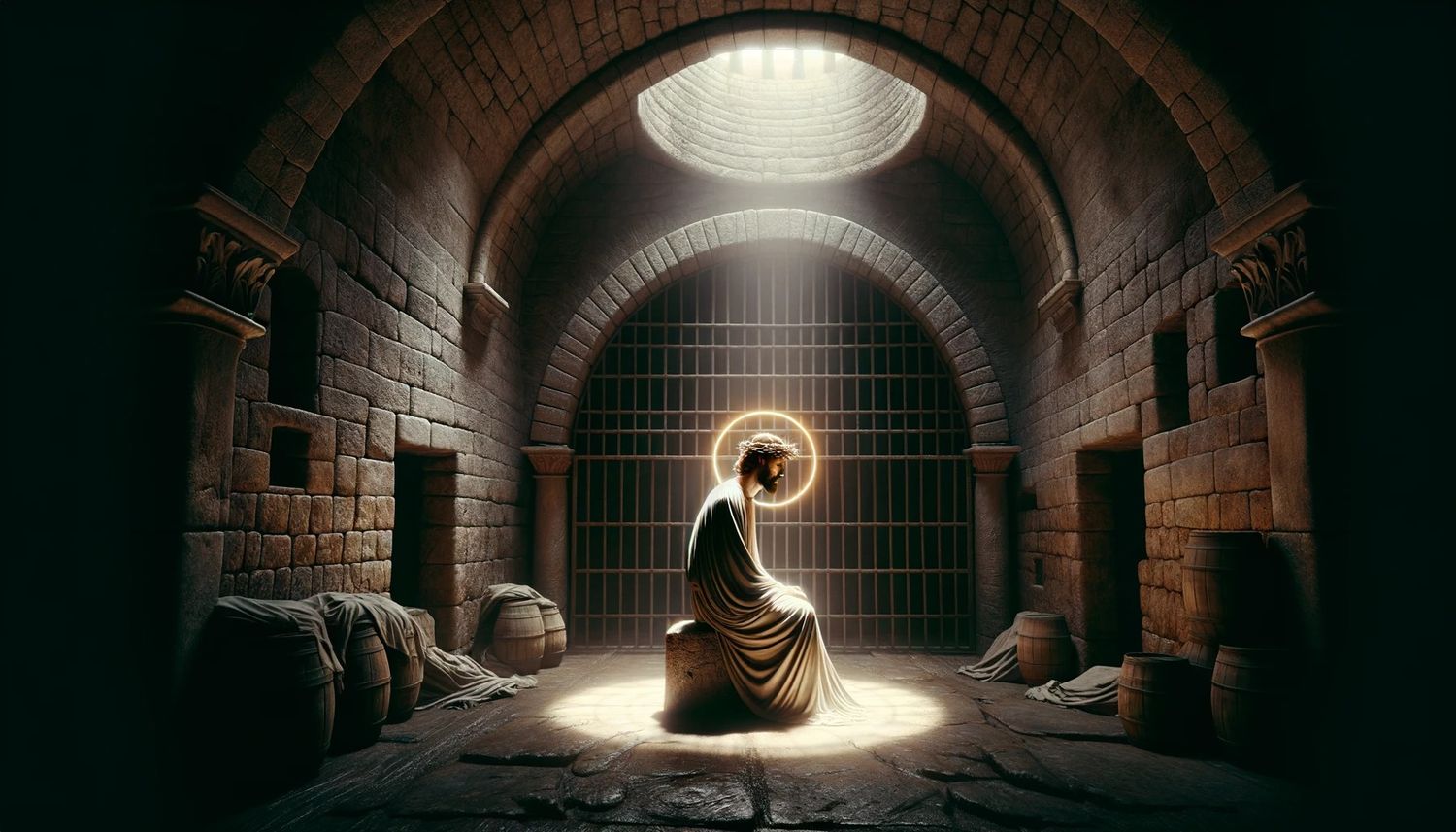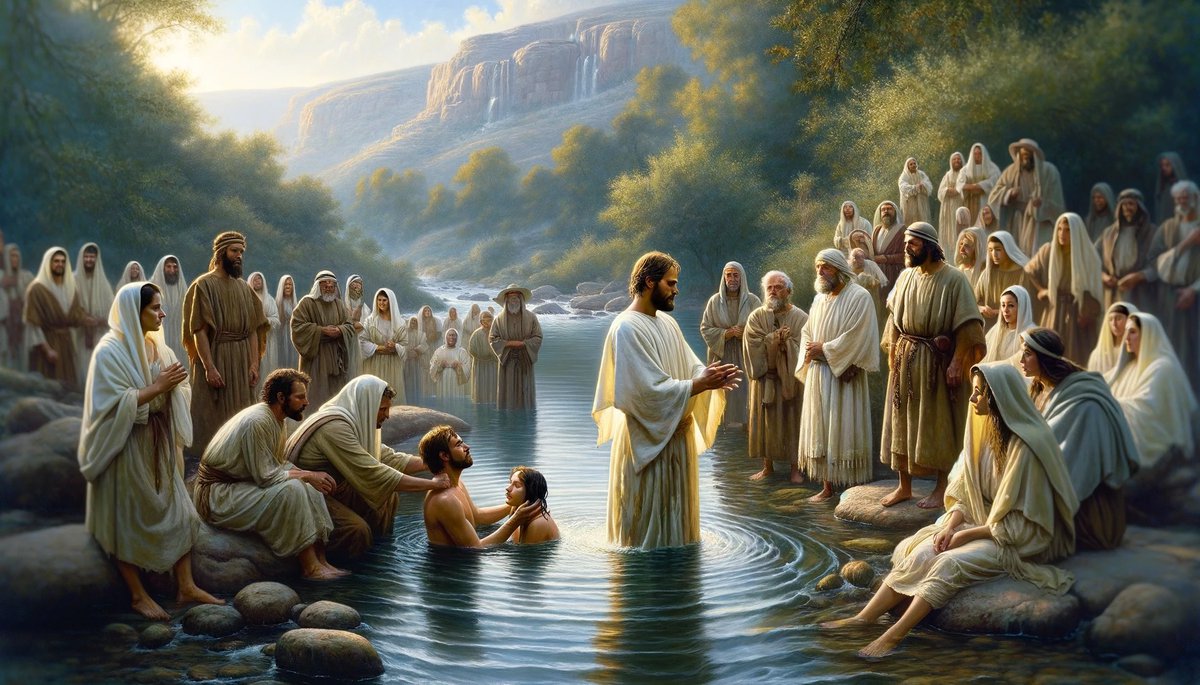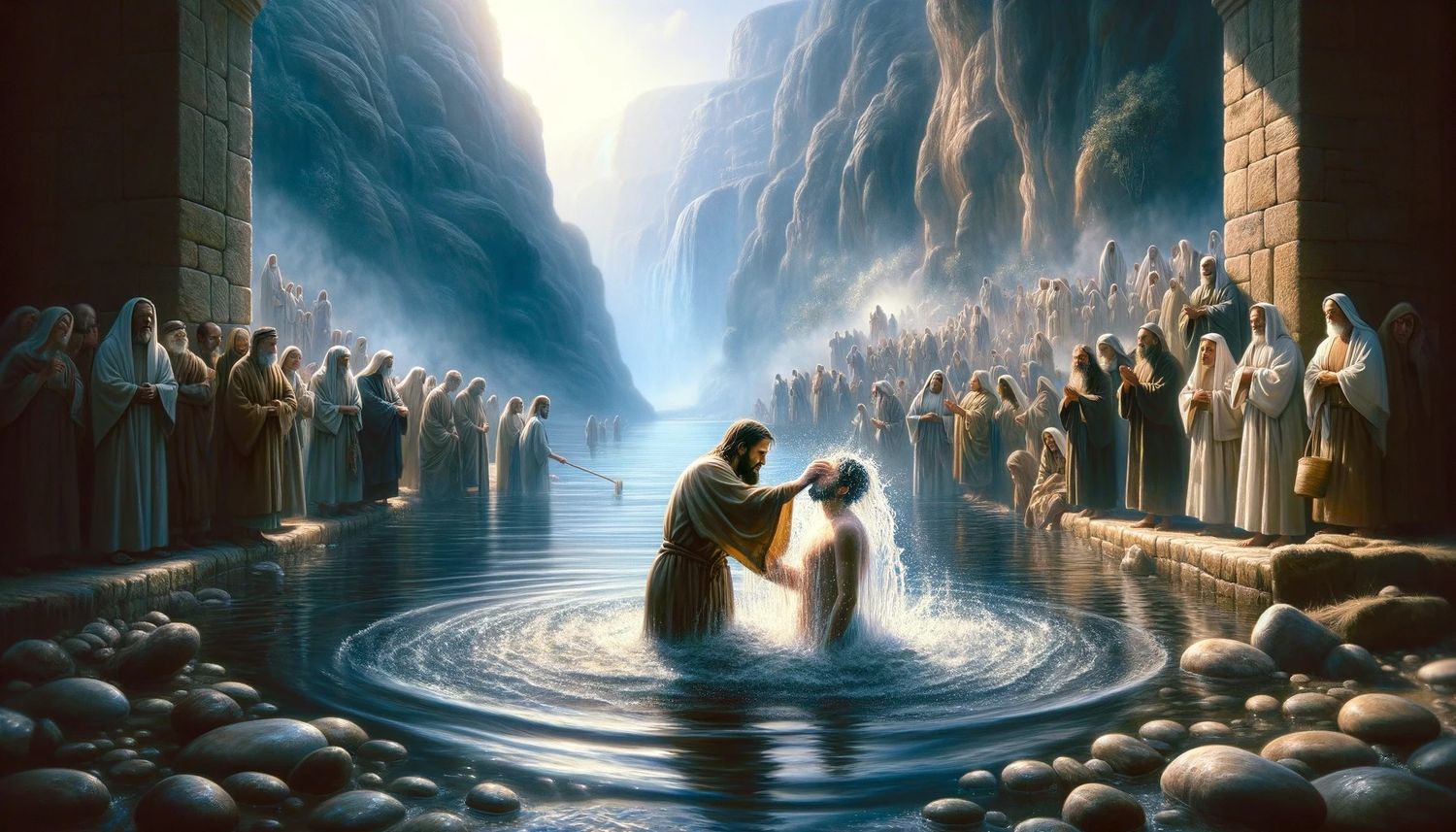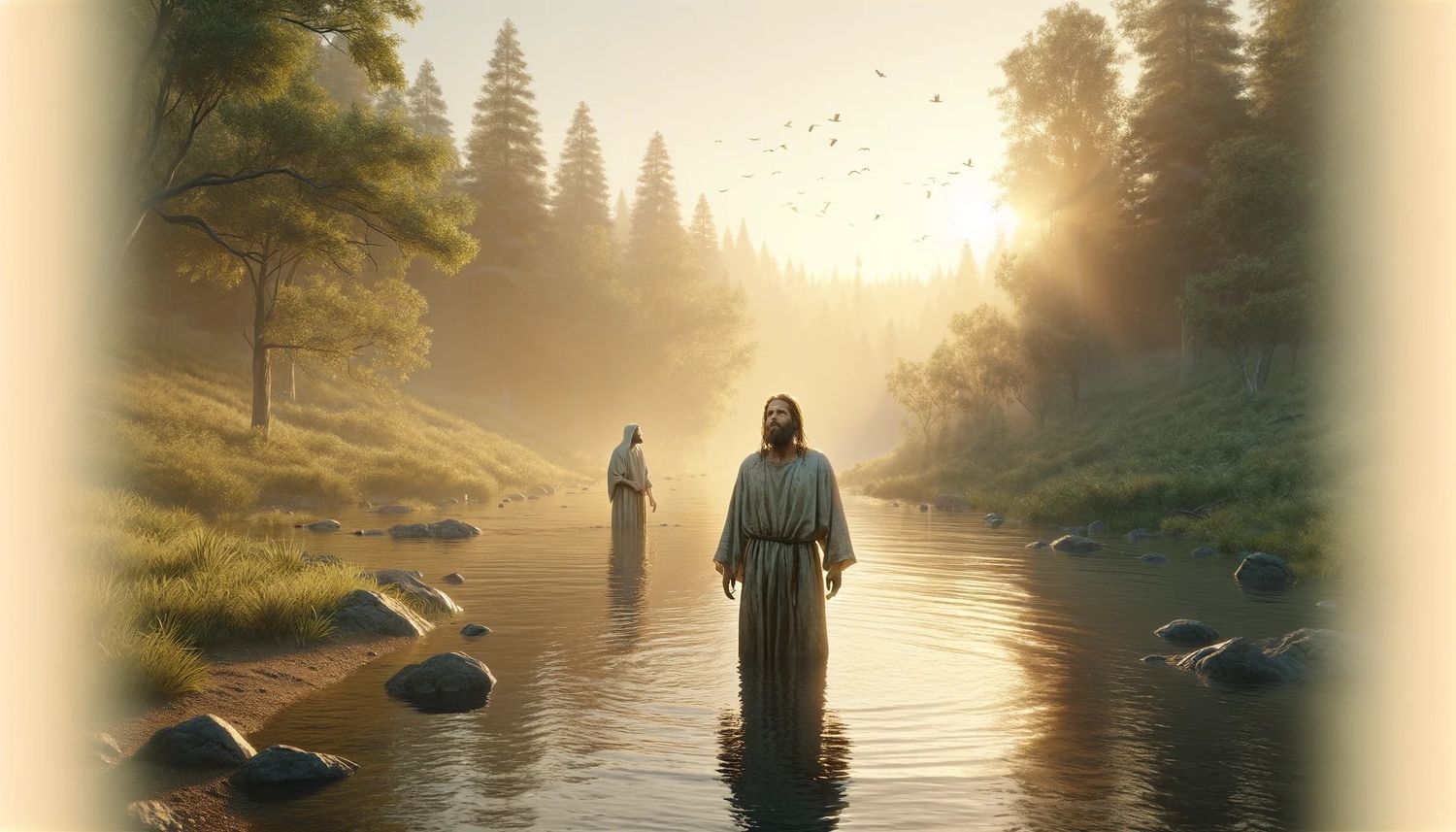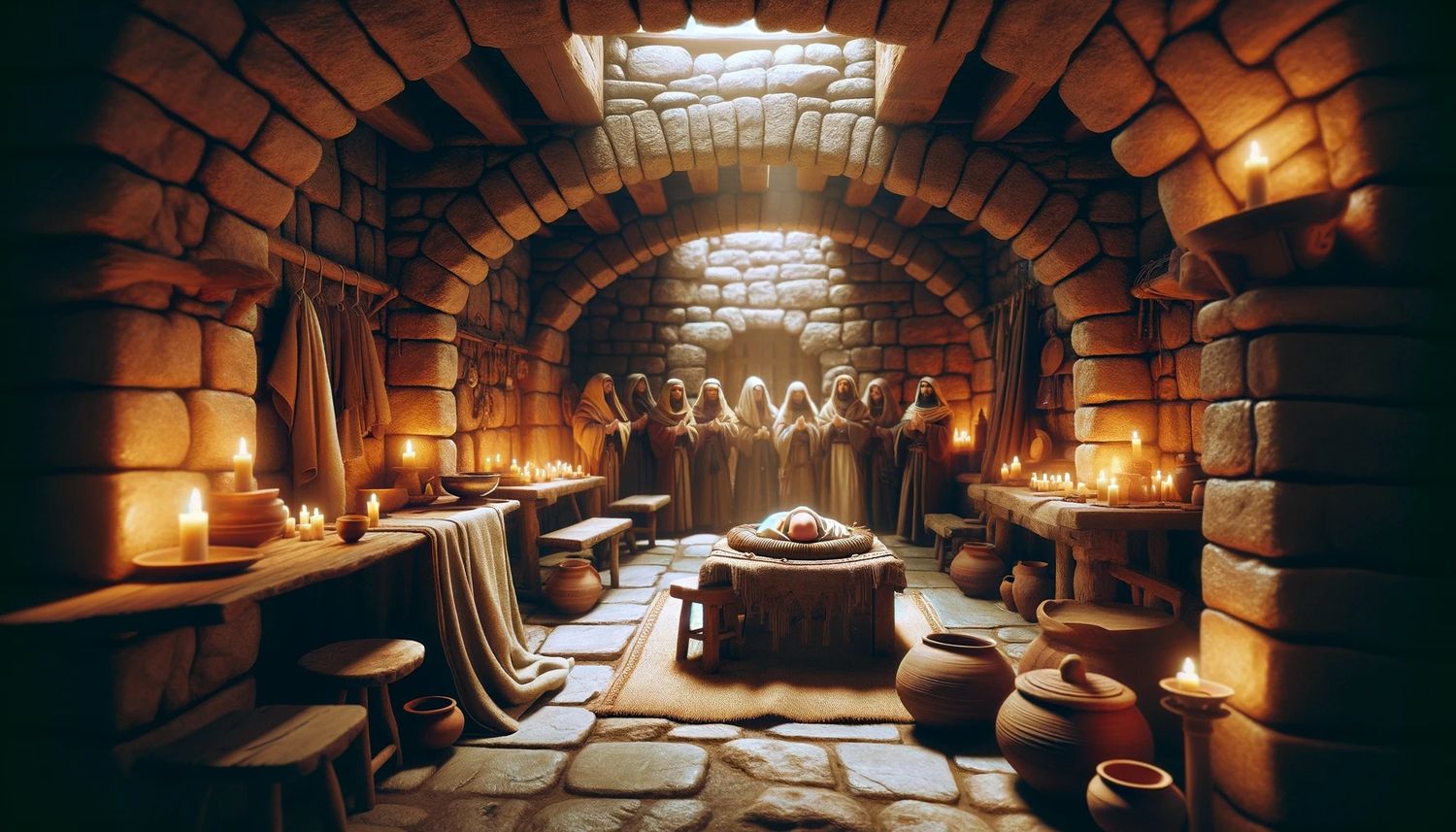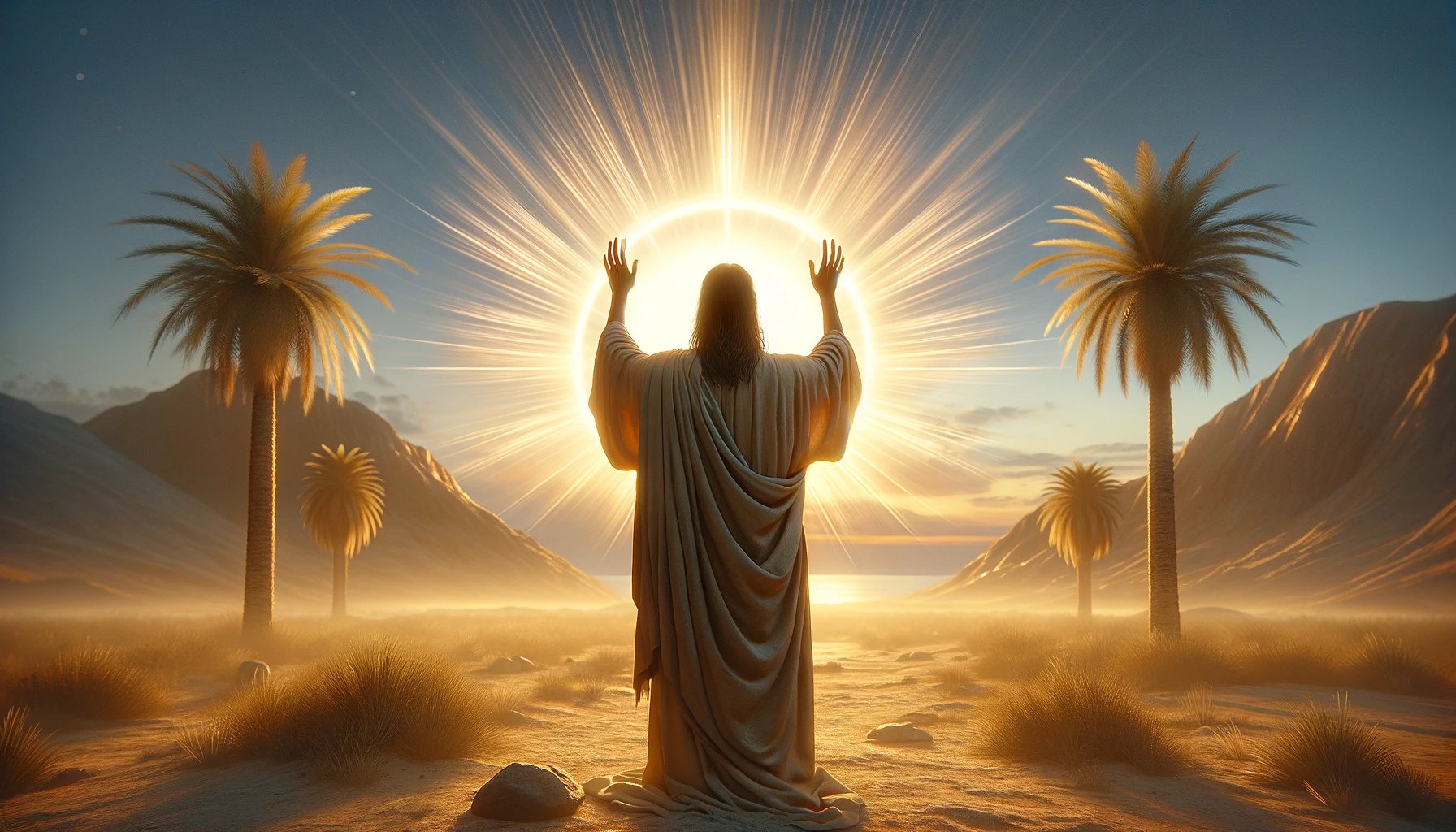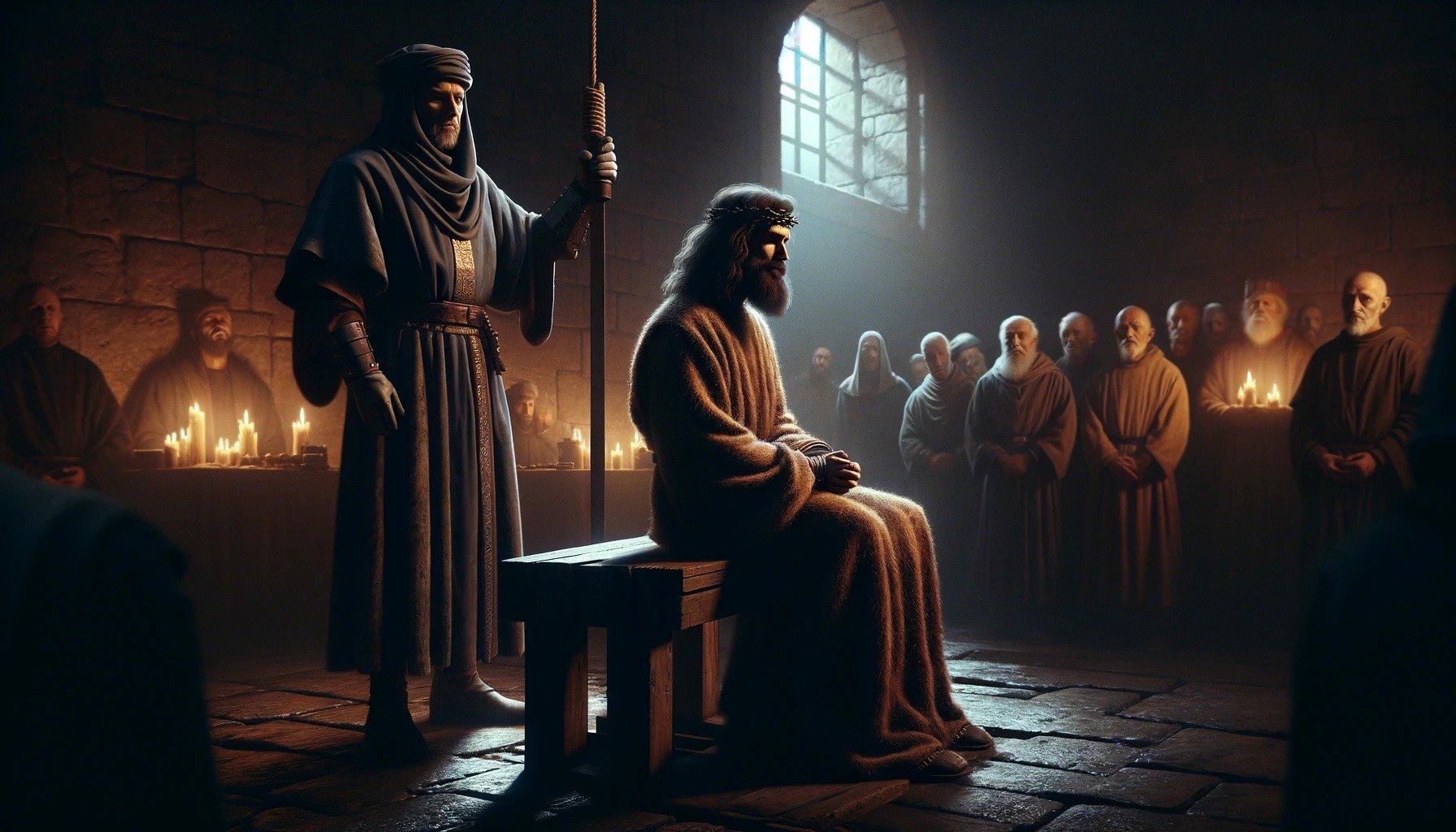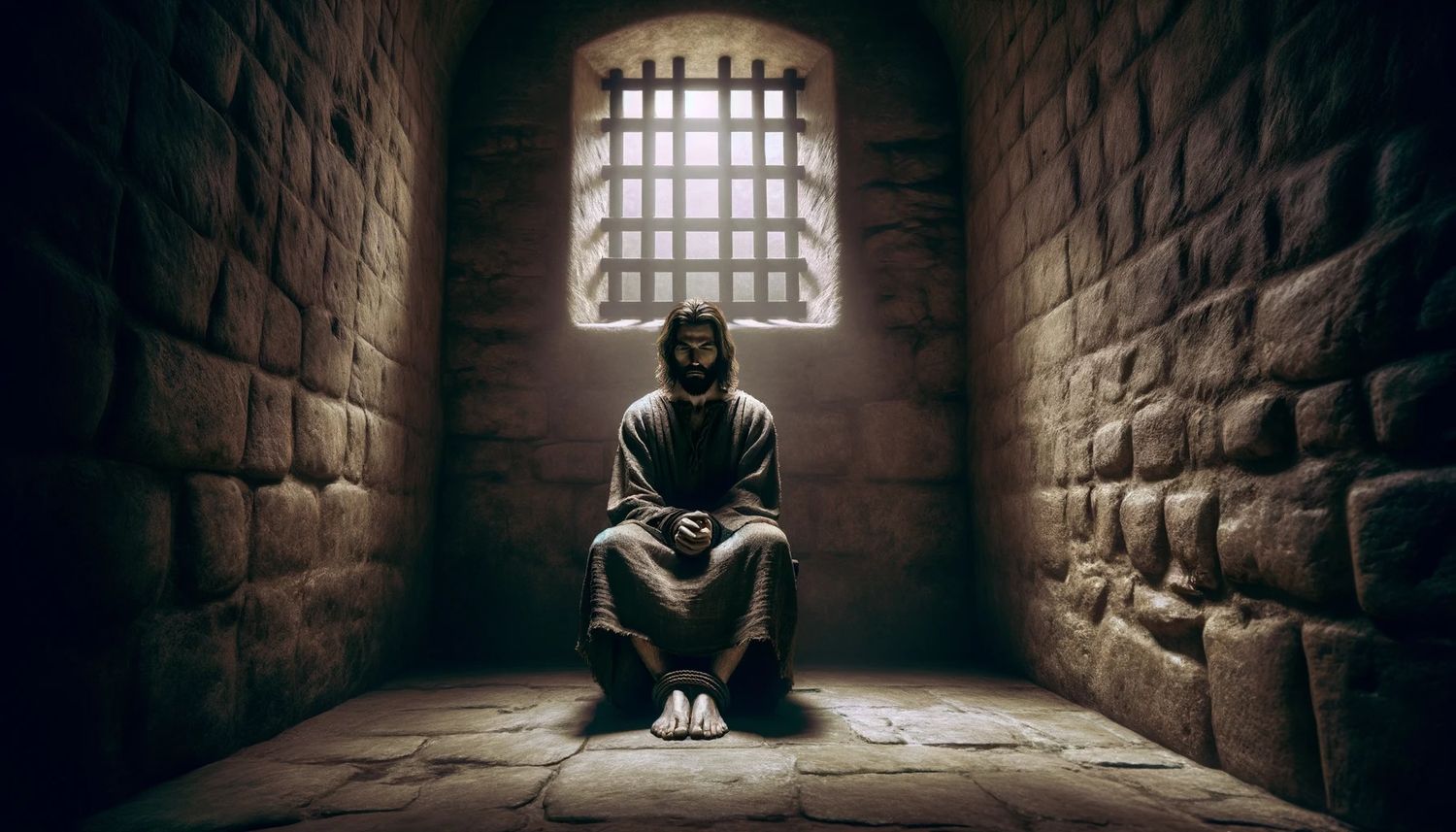Home>Christian Videos>Bible Stories>How Is John The Baptist Like Elijah
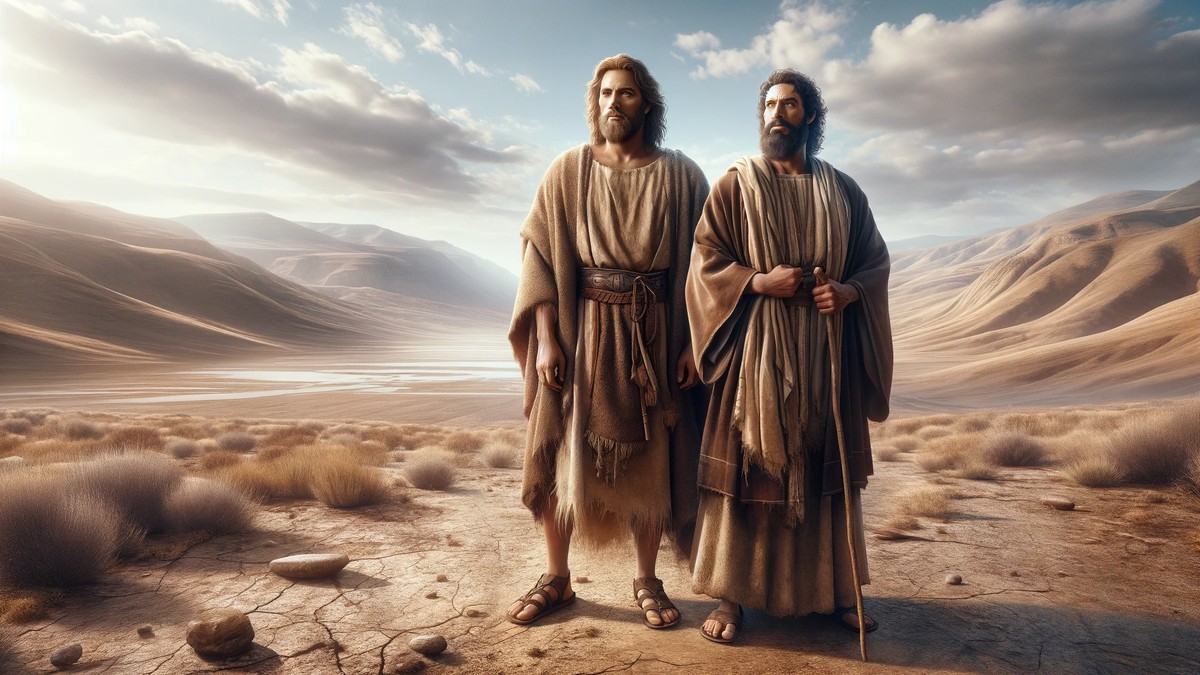

Bible Stories
How Is John The Baptist Like Elijah
Published: March 6, 2024
Peter Smith, Editorial Director at Christian.net, combines deep insights into faith, politics, and culture to lead content creation that resonates widely. Awarded for his contributions to religious discourse, he previously headed a major organization for religious communicators, enhancing dialogue on faith's societal impacts.
Discover the similarities between John the Baptist and Elijah in this insightful exploration of Bible stories. Uncover the connections and significance of their roles in biblical history.
(Many of the links in this article redirect to a specific reviewed product. Your purchase of these products through affiliate links helps to generate commission for Christian.net, at no extra cost. Learn more)
Table of Contents
Introduction
Is John the Baptist like Elijah? This is a question that has intrigued scholars and believers for centuries. Both figures are prominent in the religious texts of Christianity and Judaism, and their stories share striking similarities. In this article, we will explore the backgrounds of John the Baptist and Elijah, examine the similarities in their preaching and lifestyle, and discuss the differences between the two. By the end, you will have a deeper understanding of the connections between these two influential figures and the legacy of John the Baptist.
Read more: How Is John The Baptist Elijah
The Background of John the Baptist
John the Baptist, also known as John the Baptizer, was a significant religious figure in the early 1st century. He is revered as a prophet in Christianity and Islam. John was born to Zechariah, a priest, and Elizabeth, who was a relative of Mary, the mother of Jesus. According to the Gospel of Luke, John's birth was foretold by the angel Gabriel, who informed Zechariah that his son would be filled with the Holy Spirit from birth. John is often depicted as a rugged figure, living in the wilderness and wearing a garment of camel's hair with a leather belt around his waist. He subsisted on a diet of locusts and wild honey, and his ascetic lifestyle reflected his dedication to his divine calling. John's ministry was focused on preaching repentance and baptizing people in the Jordan River as a symbol of cleansing and purification. His message of preparing the way for the coming of the Messiah resonated with many, and he gained a following of disciples who were devoted to his teachings. John's boldness in challenging the religious authorities of his time, along with his unwavering commitment to his mission, made him a revered and influential figure in the religious landscape of the era.
The Background of Elijah
Elijah, whose name means "My God is Yahweh," is a significant figure in the religious texts of Judaism, Christianity, and Islam. He is often revered as a prophet and miracle worker. Elijah's background is shrouded in mystery, with the biblical narrative providing limited details about his early life. He is believed to have been a Tishbite from the region of Gilead. Elijah's sudden appearance in the biblical account, without any genealogy or introduction, adds to the enigmatic nature of his character. His arrival is recorded in the First Book of Kings, where he confronts King Ahab and Queen Jezebel, who had introduced the worship of the Canaanite god Baal to Israel. Elijah's bold challenge to the prophets of Baal on Mount Carmel, where he called down fire from heaven to consume a water-drenched sacrifice, solidified his reputation as a powerful and unwavering servant of Yahweh. His miraculous deeds, including raising the dead and multiplying food during a famine, showcased his divine connection and his role as a harbinger of God's power. Elijah's fervent dedication to the worship of Yahweh and his fearless opposition to idolatry made him a revered and influential figure in the religious landscape of ancient Israel. His sudden departure from earth, as described in the biblical account, further adds to the mystique surrounding his life and legacy.
The Similarities in Their Preaching
-
Call to Repentance: Both John the Baptist and Elijah were known for their fervent calls to repentance. They fearlessly confronted the moral and spiritual laxity of their respective eras, urging people to turn away from sin and return to a life of obedience to God. Their powerful messages resonated with the hearts of the people, stirring them to seek forgiveness and transformation.
-
Preparation for the Coming of the Messiah: Both figures played a pivotal role in preparing the way for the arrival of a significant divine figure. John the Baptist heralded the coming of Jesus Christ, proclaiming the need for spiritual readiness and paving the way for the ministry of the Messiah. Similarly, Elijah's unwavering commitment to the worship of Yahweh and his confrontations with idolatry set the stage for the restoration of true faith in God among the people of Israel.
-
Challenging the Religious Authorities: John the Baptist and Elijah were unafraid to challenge the religious authorities of their time. They fearlessly spoke out against hypocrisy and spiritual complacency, calling both the common people and the religious leaders to a higher standard of righteousness and devotion to God. Their boldness in confronting the powers of their day earned them a reputation for unwavering commitment to truth and justice.
-
Emphasis on Holiness and Purity: Both John the Baptist and Elijah emphasized the importance of holiness and purity in the lives of their followers. John's baptism symbolized a cleansing from sin and a commitment to righteous living, while Elijah's call for the people of Israel to choose between Yahweh and Baal underscored the necessity of wholehearted devotion to God.
-
Courage in the Face of Opposition: Both figures displayed remarkable courage in the face of opposition. John the Baptist fearlessly confronted King Herod and was ultimately martyred for his unwavering commitment to truth. Similarly, Elijah stood against the prophets of Baal and faced persecution for his steadfast allegiance to Yahweh, demonstrating extraordinary courage in the midst of adversity.
These similarities in their preaching highlight the timeless themes of repentance, spiritual preparation, moral courage, and unwavering devotion to God that resonate across the narratives of John the Baptist and Elijah.
The Similarities in Their Lifestyle
-
Asceticism: Both John the Baptist and Elijah embraced ascetic lifestyles, characterized by simplicity, self-discipline, and detachment from worldly comforts. John the Baptist lived in the wilderness, subsisting on a diet of locusts and wild honey, and wearing a garment of camel's hair with a leather belt around his waist. Similarly, Elijah's life in the wilderness and his reliance on divine provision during times of famine exemplified a commitment to a life of austerity and dependence on God.
-
Isolation: Both figures sought solitude in the wilderness as a means of deepening their spiritual connection and fulfilling their divine calling. John the Baptist's choice to live in the desert away from the trappings of urban life reflected his desire for solitary communion with God and separation from the distractions of society. Likewise, Elijah's periods of seclusion in the wilderness allowed him to commune with God and receive divine guidance for his prophetic ministry.
-
Prophetic Zeal: John the Baptist and Elijah shared a fervent zeal for proclaiming the word of God and confronting the moral and spiritual challenges of their time. Their unwavering commitment to their prophetic calling led them to boldly challenge the status quo and fearlessly speak truth to power, regardless of the personal risks involved.
-
Divine Empowerment: Both figures operated under the evident empowerment of the Holy Spirit. John the Baptist's filling with the Holy Spirit from birth and his prophetic role as the forerunner of the Messiah demonstrated a divine anointing that guided and sustained his ministry. Similarly, Elijah's miraculous deeds, such as raising the dead and calling down fire from heaven, were manifestations of the supernatural empowerment he received in fulfilling his prophetic mission.
-
Courage in Adversity: John the Baptist and Elijah demonstrated remarkable courage in the face of opposition and persecution. Their unwavering commitment to their divine mandates, despite the personal risks and hardships involved, exemplified a resolute courage that inspired others and left a lasting legacy of faithfulness and steadfastness.
The similarities in their lifestyle underscore the shared commitment to prophetic calling, ascetic devotion, divine empowerment, and courageous perseverance that characterized the lives of John the Baptist and Elijah.
Read more: How Was John The Baptist Like Elijah
The Differences Between John the Baptist and Elijah
-
Social Context: John the Baptist operated within the context of early 1st-century Judea, a period marked by Roman occupation and religious tension. In contrast, Elijah lived during the time of the divided kingdom of Israel, confronting the influence of idolatry and the reign of King Ahab and Queen Jezebel.
-
Role in Messianic Expectation: While both figures played significant roles in preparing the way for divine intervention, John the Baptist directly identified Jesus as the awaited Messiah, baptizing him and proclaiming his significance. Elijah, on the other hand, paved the way for the restoration of true worship and faith in Yahweh, without a direct association with a specific messianic figure.
-
Manner of Departure: The biblical accounts of their departures from earthly life differ significantly. John the Baptist was martyred by King Herod, facing a violent end to his earthly ministry. In contrast, Elijah was taken up to heaven in a whirlwind, an event witnessed by his successor, Elisha, and symbolizing a unique and miraculous transition from mortal existence.
-
Prophetic Ministry: John the Baptist's ministry focused on the immediate preparation for the arrival of the Messiah, emphasizing repentance and spiritual readiness. Elijah, on the other hand, confronted the pervasive influence of idolatry and false worship, engaging in dramatic confrontations with the prophets of Baal and challenging the spiritual apostasy of his time.
-
Cultural and Religious Context: John the Baptist's ministry unfolded within the framework of Judaism, with a focus on the fulfillment of Messianic prophecies and the renewal of spiritual fervor. Elijah's prophetic activities occurred in the context of the divided kingdom of Israel, where the struggle between the worship of Yahweh and the allure of foreign gods was a central concern.
These differences highlight the unique historical, cultural, and prophetic contexts in which John the Baptist and Elijah operated, as well as the distinct aspects of their roles in the unfolding narrative of divine intervention and restoration.
The Legacy of John the Baptist
John the Baptist's legacy reverberates throughout religious history, leaving an indelible mark on the development of Christian theology and spirituality. His unwavering commitment to his prophetic calling and his fearless proclamation of repentance and spiritual readiness have inspired countless generations of believers. The baptismal rite, which John employed as a symbol of cleansing and renewal, became a central sacrament in Christian tradition, signifying the washing away of sin and the initiation into a life of faith. John's pivotal role in heralding the arrival of Jesus Christ, the central figure of Christianity, underscores the profound impact of his ministry on the foundational narrative of the Christian faith.
Furthermore, John the Baptist's moral courage and willingness to confront the religious and political authorities of his time set a powerful example of speaking truth to power and upholding righteousness in the face of adversity. His martyrdom at the hands of King Herod, a consequence of his unwavering commitment to divine truth, solidified his legacy as a figure of uncompromising faith and dedication to God's will.
John's influence extended beyond his immediate historical context, shaping the ethos of asceticism and monasticism in Christian spirituality. His ascetic lifestyle in the wilderness, marked by simplicity and detachment from worldly comforts, served as a model for those seeking a deeper communion with God through renunciation of material distractions. The echoes of John's prophetic zeal and his call to repentance reverberate in the teachings of Christian theologians and spiritual leaders, emphasizing the enduring relevance of his message in the pursuit of spiritual renewal and ethical integrity.
In art and literature, John the Baptist is a recurring motif, depicted as a rugged and compelling figure, often portrayed in the act of baptizing Jesus or as a solitary figure in the wilderness. His image as a harbinger of divine revelation and a voice crying out in the wilderness has captivated the imagination of artists, poets, and musicians, contributing to the enduring legacy of his prophetic significance.
The commemoration of the Feast of the Nativity of St. John the Baptist on June 24th in the liturgical calendar of the Christian Church stands as a testament to the enduring impact of John's life and ministry. This annual observance serves as a reminder of his pivotal role in preparing the way for the coming of Christ and his enduring legacy as a prophetic voice calling humanity to repentance and spiritual renewal.
John the Baptist's legacy endures as a testament to the transformative power of unwavering faith, moral courage, and prophetic witness, inspiring believers to embrace a life of spiritual fervor, ethical integrity, and dedication to the divine call. His influence transcends the boundaries of time and culture, leaving an enduring imprint on the collective consciousness of religious devotion and spiritual aspiration.
